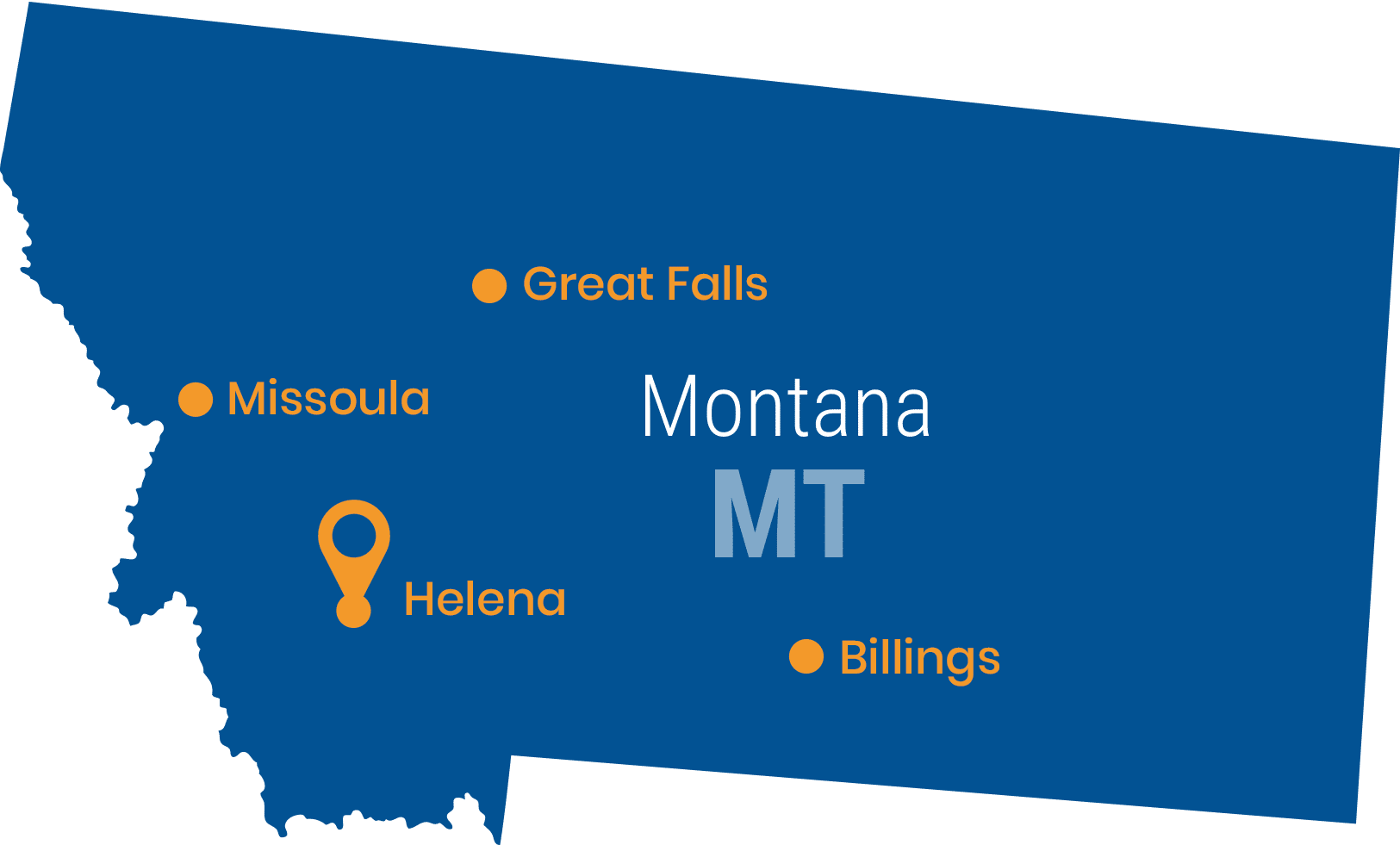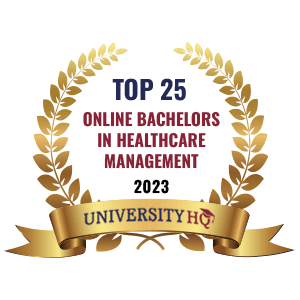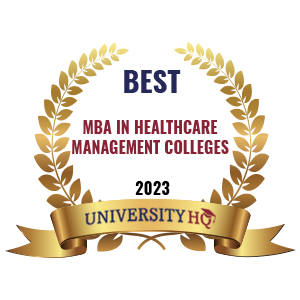What is Healthcare Management?
Montana's healthcare industry has seen exponential growth over recent years as demand for services increases. Therefore, healthcare management in Montana has never been more important. If you're interested in making Montana home for your career in health administration there are some essential details you must learn about both its culture and what opportunities exist there for you.
A healthcare manager is an individual responsible for overseeing the operations of a healthcare organization. They may plan, direct, and coordinate all administrative and clinical aspects of the healthcare organization. This includes managing finances, human resources, operations, and ensuring compliance with regulatory requirements.
Healthcare managers play various roles within healthcare organizations and their duties may differ depending on whether they work in hospitals, clinics, nursing homes, or any other facility. Within hospitals, specifically, they may oversee operations of either an entire department or even oversee all departments within.
The primary responsibility of a healthcare manager is to ensure that the healthcare organization provides quality care to patients. They work closely with medical professionals, such as nurses and physicians, to ensure that patients receive the high-quality care they need. They are also responsible for managing budgets, hiring and training staff, and implementing policies and procedures to ensure the smooth running of the organization.
Successful healthcare managers require excellent communication and leadership abilities, the capacity to manage budgets and financial resources efficiently, a deep knowledge of healthcare regulations and policies, and be able to work effectively under pressure and make quick decisions to protect both patients and organizations.
In conclusion, healthcare managers play a vital role in the healthcare industry. They are responsible for overseeing the operations of healthcare organizations and ensuring that patients receive quality care. If you are interested in pursuing a career in health administration, it’s essential to have the necessary education, skills, and experience to succeed in this challenging and rewarding field.

Featured Online Programs
Online Healthcare Management Education in Montana
Montana is home to several prominent healthcare organizations such as Billings Clinic, St. Peter's Health, and Bozeman Health. These facilities offer medical care services throughout Montana to meet people's medical needs. Montana also has affordable health programs, like Medicaid and Children's Health Insurance Program (CHIP), that offer accessible healthcare coverage at an affordable cost for low-income families.
Montana also offers health administration jobs with various levels of responsibility and pay such as healthcare administrator, health information manager, healthcare financial manager, and clinical manager jobs. Healthcare management professionals typically earn an annual average salary of $105,000. Participating in a professional organization can help you hone new skills and expand your professional network. In Montana, Montana Association of Health Care Executives offers health administration professionals an excellent professional organization offering professional development programs, networking events, educational resources, and educational support services to its members.
Healthcare management education is an integral component of Montana's healthcare industry, offering plenty of career opportunities. By receiving proper education and training, gaining practical experience, and joining professional associations, healthcare managers in Montana can achieve great success within this industry.
Online Associate (AS)
Associate healthcare management degrees are undergraduate programs designed to provide students with a strong foundation in business and management principles as they relate to the healthcare industry. You could also choose to earn a health sciences degree at this level to gain general knowledge of health science, global health, health professions, etc. Students enrolled in these programs will learn about various aspects of healthcare including medical terminology, healthcare laws and regulations, patient care, and health information management.
Health administration colleges offer these degree programs both online and on-campus. The curriculum typically includes courses such as Healthcare Financial Management, Healthcare Human Resources Management, Healthcare Quality Management, and Healthcare Information Systems. These courses are designed to equip students with the necessary knowledge and skills to manage a healthcare facility or department effectively.
Graduates with an associate healthcare administration degree can pursue various career paths within the healthcare industry. They can work as medical office managers, administrative assistants in hospitals or clinics, billing specialists, or even serve as team leaders at nursing homes. With the demand for qualified professionals rising almost daily due to rising ages and increasing awareness of health concerns; pursuing this degree program can be a wise career choice if one has an aptitude for business and management principles combined with compassion towards people's well-being.
Online Bachelors (BS)

Healthcare and health services management is an ever-evolving field that requires a unique combination of business and healthcare knowledge. Bachelor's healthcare administration degree programs in health administration are designed to equip students with the skills necessary to succeed in this challenging industry. Many colleges and universities offer undergraduate degrees in healthcare management, either as a standalone program or as part of a larger department.
These programs typically cover a variety of topics including healthcare policy, finance, ethics, marketing, and strategic planning. Students may also have the opportunity to specialize in areas such as hospital administration or long-term care management. In addition to classroom instruction, many programs also require students to complete internships or other practical experiences in real-world healthcare settings.
Graduates of bachelor's degree programs in health services management are well-prepared for a range of careers within the healthcare industry. They may work as administrators for hospitals, clinics, nursing homes, or other healthcare organizations. Alternatively, they may pursue roles in health insurance companies or government agencies that regulate the industry. With strong demand for skilled professionals in this field projected well into the future, pursuing a degree in health administration can be an excellent investment for those interested in both business and medicine.
Find Your Online Healthcare Management Program
Online Masters (MS)

A Master of health administration can be obtained from various colleges and universities across the United States. These degree programs focus on teaching students about healthcare policy, economics, finance, quality improvement, and leadership. Students who pursue these degrees will gain a deep understanding of the healthcare industry and develop the skills necessary to manage healthcare organizations effectively.
The curriculum in these degrees typically includes courses such as Healthcare Finance and Economics, Strategic Planning in Healthcare Organizations, Quality Improvement in Healthcare Systems, and Legal Aspects of Healthcare Administration. Graduates with a master's degree in this field can find employment opportunities in hospitals, clinics, government agencies, insurance companies, consulting firms, and any other organization involved in providing healthcare services. This degree also serves as preparation for individuals seeking higher-level management positions within their respective organizations.
Online Doctorate (PhD)
Earning a PhD in healthcare management involves an extensive exploration of the healthcare industry. These degree programs are designed to help students learn how to manage and lead healthcare organizations, improve patient care, and develop health policies. The curriculum may include courses on healthcare economics, health information systems, organizational behavior, and strategic planning in the healthcare industry.
Health administration colleges offer various degree programs ranging from undergraduate degrees to doctoral degrees. Many universities offer online courses for students who want to earn their degree while working or taking care of family obligations. A doctoral degree in healthcare management can prepare graduates for research positions or teaching careers at universities and colleges, or they can work as hospital administrators, policy analysts, or healthcare consultants. They have the potential to make significant contributions towards improving the quality of care delivered by hospitals and other medical facilities by developing new strategies that enhance efficiency and effectiveness in providing patient care. Furthermore, they can shape public policy by providing insights into current challenges faced by patients' access to healthcare services.
Online Certifications
Healthcare management certifications are an excellent way for professionals to demonstrate their expertise and commitment to the field. Many colleges and universities offer healthcare administration degree programs that lead to various certifications including Certified Healthcare Executive (CHE), Fellow of American College of Healthcare Executives (FACHE), and Certified Professional in Healthcare Risk Management (CPHRM). These certifications signify a high level of education, experience, and achievement in the healthcare management field.
Degree programs in healthcare management typically cover topics such as healthcare law and ethics, financial management, human resources, leadership skills, quality improvement, strategic planning, and information technology. These programs also provide students with opportunities to develop practical skills through internships or hands-on projects. The combination of theoretical knowledge with practical experience prepares graduates for leadership roles in hospitals, clinics, long-term care facilities, insurance companies, government agencies, consulting firms, and other settings within the industry.
In conclusion, earning a certification in healthcare management is a valuable investment for professionals who wish to advance their careers or enhance their credibility within the industry. It requires dedication and hard work but can lead to rewarding opportunities that make a significant impact on people's lives. Enrolling in one of many reputable healthcare management colleges or degree programs is an excellent way for individuals interested in pursuing this path.
Become a Healthcare Manager in Montana
Healthcare is a constantly growing field, and with that growth comes the need for qualified healthcare managers. If you're interested in becoming a healthcare manager, there are steps you can take to make that dream a reality.
-
Step 1: Earn a Bachelor's Degree
A bachelor's degree is often the minimum education requirement for healthcare management positions. You can pursue a variety of majors including healthcare administration, business administration, or public health. These programs will provide you with the necessary skills and knowledge needed to succeed in a healthcare management role.
-
Step 2: Gain Experience in the Healthcare Field
Experience in healthcare is vital to becoming a healthcare manager, whether through internships, volunteerism, or entry-level jobs. Working in this industry provides invaluable knowledge of its challenges – an essential component of success when fulfilling managerial responsibilities.
Step 3: Consider a Master's Degree
Although a bachelor's degree is the minimum requirement, having a master's can make you stand out in the job market and increase earning potential. Many healthcare management programs, including Montana State University and University of Montana offer master's programs.
-
Step 4: Obtain Certification
Certification may not be mandatory to become a healthcare manager, but it can demonstrate your expertise and dedication to the industry. The National Association of Healthcare Administration Management (NAHAM) offers certification for healthcare managers.
Find Online Healthcare Management Programs
What Can I Do with a Bachelor's in Healthcare Management?
A bachelor's in healthcare management can lead to a variety of career options in the healthcare industry. Graduates can find roles as hospital administrators, healthcare consultants, practice managers, and even insurance underwriters. Hospital administrators oversee the day-to-day operations of a medical facility, ensuring that patients receive high-quality care while managing staff and budgets. Healthcare consultants provide advice on how medical organizations can improve their efficiency and profitability.
Practice managers oversee the administrative side of physician practices, ensuring that they run smoothly and efficiently. Insurance underwriters evaluate insurance applications to determine risk levels and premiums for policies related to healthcare. In addition to these roles, graduates may also choose to pursue advanced degrees or certifications in specific areas such as health information technology or nursing home administration to further advance their careers in healthcare management. Overall, a bachelor's degree in health management is an excellent starting point for anyone interested in pursuing a career in this field.
Potential Careers for Healthcare Management Graduates
- Business Administrative Specialist:
An administrative support specialist will be responsible for providing administrative and clerical support to ensure efficient office operations. The role requires strong organizational skills, attention to detail, and excellent communication abilities.
Necessary Requirements:
- High school diploma or equivalent; associate's or bachelor's degree preferred
- Proven experience as an administrative assistant or similar role
- Proficient in Microsoft Office Suite and other relevant software
- Strong communication and interpersonal skills
- Excellent time management and organizational skills
- Ability to multitask and prioritize tasks effectively
Estimated Salary
- The median annual wage for secretaries and administrative assistants in the US in 2021 was $39,680
- The mean annual wage for secretaries and administrative assistants in Montana is $38,150
- Medical Secretary:
Medical secretaries play a vital role in healthcare facilities by overseeing their administrative duties. Their primary responsibilities include documenting patient records accurately, scheduling appointments on time, and greeting patients professionally.
Necessary Requirements:
- High school diploma or equivalent
- Knowledge of medical terminology
- Familiarity with medical software and computer programs
- Excellent communication skills, both verbal and written
- Ability to multitask and prioritize tasks effectively
- Strong organizational skills
- Attention to detail and accuracy in documentation
Estimated Salary
- The mean annual wage for medical secretaries and administrative assistants in the US in 2021 was $41,260
- The mean annual wage for medical secretaries and administrative assistants in Montana is $36,730
- Quality and Improvement Manager:
A quality and improvement manager is responsible for ensuring that all products, services, and processes meet or surpass established quality standards. This requires identifying areas for improvement, implementing quality control measures, and tracking performance to ensure continuous progress towards excellence.
Necessary Requirements:
- Bachelor's degree in a relevant field
- At least 5 years of experience in quality control or process improvement roles
- Strong analytical skills and attention to detail
- Excellent communication and interpersonal skills
- Ability to lead cross-functional teams and drive change
- Knowledge of relevant regulations and industry standards
Estimated Salary
- The median annual wage for quality control inspectors assistants in the US in 2021 was $38,580
- No available mean annual wage for quality and improvement manager in Montana
- Ambulatory Care Manager:
An ambulatory care manager is responsible for overseeing the day-to-day operations of outpatient medical facilities. They are tasked with ensuring that all patients receive high-quality care and that the facility operates efficiently.
Necessary Requirements:
- Bachelor's degree in healthcare administration or a related field (Master's degree preferred)
- Experience managing an outpatient medical facility
- Strong leadership and communication skills
- Ability to manage budgets and financial resources effectively
- Excellent problem-solving skills and attention to detail
Estimated Salary
- The median annual wage for medical and health services managers in the US in 2021 was $101,340
- The mean annual wage for medical and health services managers in Montana is $102,500
- Public Health Program Manager:
Public health program managers play an invaluable role in coordinating and overseeing public health initiatives in various settings. Their primary responsibility lies with overseeing development, implementation, and evaluation of programs addressing community health needs.
Necessary Requirements:
- Bachelor's degree in public health or related field; Master's degree preferred
- Minimum of 3 years of experience in managing public health programs
- Strong understanding of public health principles, practices, and policies
- Excellent project management, communication, and leadership skills
- Ability to work independently and as part of a team in a fast-paced environment
- Knowledge of grant-writing, fundraising, and budget
Estimated Salary
- The median annual wage for medical and health services managers in the US in 2021 was $101,340
- The mean annual wage for medical and health services managers in Montana is $102,500
- Mental Health Counseling Administrator:
Mental health facility administrators are charged with overseeing the daily operations of mental health facilities, making sure that everything runs efficiently while still offering top-quality care to patients.
Necessary Requirements:
- Bachelor's or Master's degree in healthcare administration or a related field
- Minimum of 5 years of experience in healthcare administration, with a focus on mental health facilities
- Strong leadership and management skills
- Excellent communication and interpersonal skills
- Knowledge of state and federal regulations related to mental health facilities
Estimated Salary
- The median annual wage for medical and health services managers in the US in 2021 was $101,340
- The mean annual wage for medical and health services managers in Montana is $102,500
- Hospice Administrator:
As a hospice administrator, you will be responsible for overseeing the daily operations of a hospice facility or program. You will work closely with medical and nursing staff to ensure that patients receive the highest quality of care while maintaining compliance with all legal and regulatory requirements.
Necessary Requirements:
- Bachelor's degree in healthcare administration or related field; Master's degree preferred
- At least 5 years of experience working in healthcare administration, preferably in hospice care
- Strong leadership skills and ability to motivate staff members
- Excellent organizational and communication skills
- In-depth knowledge of hospice regulations and standards of care
Estimated Salary
- The median annual wage for medical and health services managers in the US in 2021 was $101,340
- The mean annual wage for medical and health services managers in Montana is $102,500
- Development Director:
A development director is responsible for leading and managing all fundraising activities for an organization. They work closely with the executive team to develop and implement strategies to increase funding and expand the organization's reach. They are a key player in cultivating relationships with donors, foundations, and corporate sponsors.
Necessary Requirements:
- Bachelor's degree in business, nonprofit management, or a related field
- At least 5 years of experience in nonprofit fundraising or development
- Strong leadership skills and experience managing teams
- Excellent communication and interpersonal skills
- Knowledge of fundraising best practices, trends, and techniques
- Ability to think strategically and creatively to achieve goals
- Strong organizational skills with attention to detail
- Passion for the mission of the organization
Estimated Salary
- The median annual wage for training and development managers in the US in 2021 was $120,130
- The mean annual wage for training and development managers in Montana is $111,650
Search All Programs
